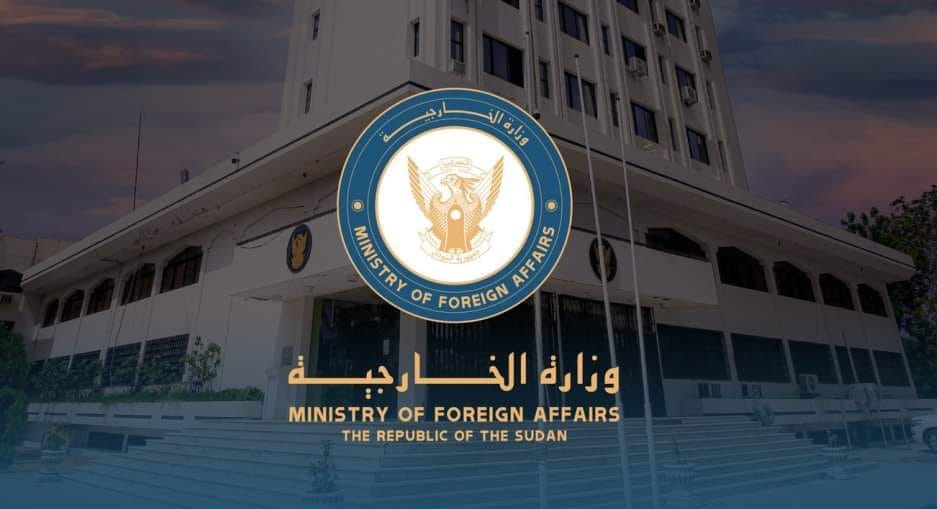
One Hundred Days of War.. One Hundred Days of Misinformation
Abdullah Rizik Abu Seimazah
As the war completes its one hundredth day since it erupted on April 15th, the Sudanese Ministry of Foreign Affairs declared, seemingly without a specific reason, that many of the circulating news regarding the negotiations between the warring parties, the Armed Forces, and the Rapid Support Forces, are inaccurate.
This is an important entry point to the field of creating confusion, manipulation, and free falsehoods, of the kind: Who started the war? Who fired the first shot? It also serves as an appropriate introduction to asserting that the past one hundred days have been a hundred days of systematic deception, as well as a hundred days of tearing apart the social and national fabric through hate speech and violations of Sudanese human rights.
The Ministry, perhaps out of arrogance, did not want to acknowledge the truth or deny the earlier news it had previously disseminated.
Unknown-sourced reports circulated about the imminent agreement between the warring parties, proposing a long-term ceasefire with external monitoring, widely spread at the beginning of the week, after some military leaders (General Shams al-Din Kabashi) expressed preliminary support for negotiations, and there were positive signs of ending the war (General Yasser Atta). This created a sense of relief among citizens.
In this context, multiple media outlets, including Al Jazeera and Al Hadath, reported last Wednesday the Sudanese Ministry of Foreign Affairs saying that the ongoing negotiations for a ceasefire between the Sudanese army and the Rapid Support Forces in Jeddah, Saudi Arabia, have shown positive signs. The two sides are expected to sign a long-term ceasefire agreement in the coming days.
It appears that this news, from an official source affiliated with one of the warring parties, did not find acceptance from some influential circles supportive of the wars continuation. Consequently, the Ministry had to indirectly retract and deny it.
Just over two days later, in a statement to the Sudan News Agency (SUNA), the Acting Minister of Foreign Affairs, Ambassador Ali Al-Sadiq, refuted those reports and said, The information circulated about the possibilities of reaching a ceasefire in the course of Jeddah negotiations is inaccurate and does not reflect the reality of the situation.
It is noteworthy that the negotiations have been noticeably secretive, making it difficult for journalists to provide citizens with accurate information about the negotiation process. The journalists have faced serious challenges in covering the daily facts of the war, verifying unknown-sourced information, and ensuring its safety, whether related to the war facts or to the progress of the negotiations taking place in Jeddah under Saudi-American auspices.
The front opposing misleading information and combating it is, without a doubt, the front of journalists. These practical challenges, including the risks that threaten the journalists life itself, have paved the way for the dominance of misleading information. The war, from this perspective, appears to be a war over information itself, amidst public opinion. Each party in the war seeks to promote manufactured lies or partial truths to influence public opinion and its stance on the war, and to market hate speech, particularly to undermine social peace and escalate the limited power conflict surrounding authority into a comprehensive civil war.
The war not only needs a conducive environment for the production and promotion of misleading information but also aims to legitimize part of its tools and means, making the fight against misleading information one of the aspects of opposing the war.
In these days when the war is losing its initial momentum and its futility is becoming evident as an intricate and severe deadlock, more than ever before, the circulating news about targeting specific population groups during the war by this or that party involved, is deeply disturbing and raises serious concerns, whether true or not.
It has played its role in incitement, negative mobilization, and fueling the war along regional and tribal divisions, which complicates the efforts to end the war, just as it complicates the mission of the well-intentioned and vibrant forces in Sudanese society, who have mobilized their efforts to intensify peaceful endeavors on the front of halting the war.
As the war enters its fourth month, amid fears of its prolonged duration and geographical expansion, the need for collective efforts, all efforts and energies, and their coordination to encircle and isolate the war and its instigators, and to expose its true nature as a gross violation of human rights, particularly the right to a safe and secure life, remains more urgent than ever.

